November 10, 2021, Holy Father Arsenius of Cappadocia | Greek Orthodox Divine Liturgy Live Stream
St. Arsenios the Cappadocian was born around 1840 in the village of Kephalochori in the Farasa region of Cappadocia, Turkey. At that time, Kephalochori was one of 6 Christian villages in the region. His parents named him Theodore at birth. Theodore had a brother named Vlasios, and parents that were very kind and good.
While the boys were still young, they were orphaned, and their aunt (their mother’s sister) then took care of them. One time St. George miraculously saved Theodore and it had such an impact on both boys that they dedicated their lives to God’s service. Vlasios became a Byzantine Music teacher and Theodore eventually became a monk. Before he was a monk, though, Theodore studied in Nigde and then Smyrna.
When Theodore turned 20 years old he went to the Holy Monastery of the Precious Forerunner Flavianon. Later he was tonsured a Monk, and was given the name Arsenios. At that time, there were not enough teachers in Turkey, so instead of living the quiet and prayerful life that often is the life of a monk, Arsenios was ordained to the diaconate by Metropolitan Paisios II, who then sent him to Farasa so that he could teach the children there how to read. This had to be done in secret, though, because the Turks did not want Christianity to spread through their country. Ten years later, when he was 30, Arsenios was ordained to the priesthood in Cesarea.
Fr. Arsenios wanted to be the best Christian that he could possibly become, so he began to do all that he could work toward that end. Through him, God began to heal people’s souls and also their bodies. Even though at that time, Christians were being hurt and repressed by the Turks, Fr. Arsenios’ love for God helped him to love and help everyone, whether they were Christians or Turks. It made no difference to the Saint: he saw each person as the icon of God, created with much love. God’s grace was on Fr. Arsenios because of this, and he was given the ability to work miracles. When he prayed for them, women who had been barren had children. He read the Gospel over people who were blind, mute, lame, paralyzed, and even demon-possessed: and they were healed by the time he finished the reading. God healed so many people through Fr. Arsenios, but he would never accept any money or other help for the work he did to heal people. When they would offer to pay him, he would simply answer, “Our faith is not for sale”… (In later years, the people of Farasa said that they didn’t even know what a doctor was until they got to Greece. They always just went to Fr. Arsenios for healing. They did not realize this was unusual.)
Fr. Arsenios lived in a simple cell. He locked himself in that cell on Wednesdays and Fridays so that he could pray. On those days he would spend hours on his knees praying for the people whom God had placed in his care. Those two prayer days every week blessed the work that he did on other days of the week. While praying, often he would pray from the Psalms. He especially turned to the book of Psalms if he needed a prayer for a specific situation or if he wanted to pray a blessing. He noted that each Psalm has a theme that is appropriate to pray for certain circumstances. He compiled those themes into a book called “The Psalter of St. Arsenios.”
Fr. Arsenios chose to hide his virtuous life from others so no one would praise him. In order to successfully pull that off, he would often pretend to be strict, angry, grouchy, and unfair, especially to the women who tried to help him. For example, because of their love for and gratitude to him, sometimes women would cook for him or send him food. Instead of thanking them, he would say something like this: “If I had wished to be served by women, I would have become a married priest and my wife would serve me. The monk who is served by women, is not a monk”
God allowed Fr. Arsenios to also have the gift of prophecy. God showed him that he would leave for Greece because of a population exchange, and this actually happened on August 14th, 1924. Before this happened, St. Arsenios hurried to baptize all the unbaptized children. (When he baptized one of them, he asked the parents to name the child Arsenios instead of Christos, which is the name of the child’s grandfather. When they asked why he wanted to name the child Arsenios, he said: “You want to leave a child at the grandfather’s foot, don’t I want to leave a monk at my foot?”)
Shortly before he fell asleep in the Lord, the Theotokos appeared to him and took him all around Mt. Athos. It had always been a dream of his to see the churches there, but he was unable to do so until the day that she took him. She told him that in three days he would depart this life, and it happened just as she said, on November 10, 1924.
-
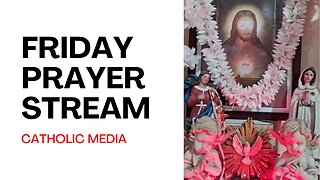 3:05:06
3:05:06
Catholic Media
9 months ago $0.08 earnedFriday Prayer Stream on Catholic Media - Aug. 18th, 2023
894 -
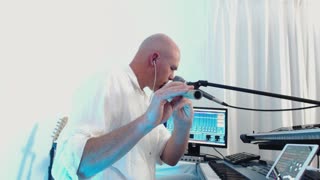 2:22:24
2:22:24
Lilyband Psalmist - Jesus Generation Church
3 months agoJanuary 27th, 2024 Live Worship Broadcast
202 -
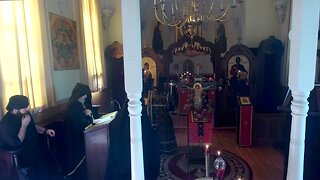 1:23:20
1:23:20
Catholic Media
1 year ago $0.21 earnedHoly Resurrection Monastery Live Stream - Fri, Apr. 14th, 2023
404 -
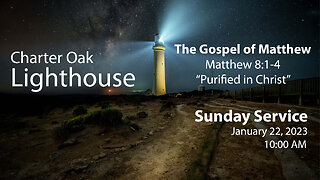 1:46:05
1:46:05
Charter Oak Lighthouse
1 year agoChurch Service - 1-22-2023 Livestream - Matthew 8:1-4 - Purified In Christ
43 -
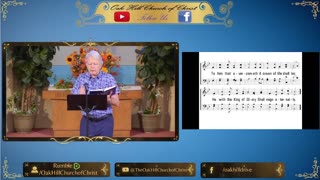 1:15:26
1:15:26
The Oak Hill Church of Christ
11 months agoOak Hill Church of Christ 6-18-23 Worship Stream Live!
10 -
 2:18:27
2:18:27
Lilyband Psalmist - Jesus Generation Church
3 months agoFebruary 03, 2024 | Live Worship Broadcast
144 -
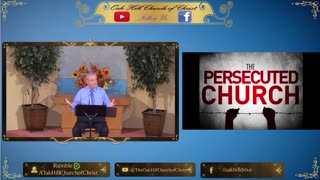 1:18:38
1:18:38
The Oak Hill Church of Christ
6 months agoOak Hill Church of Christ 11-12-23 Worship Stream Live!
19 -
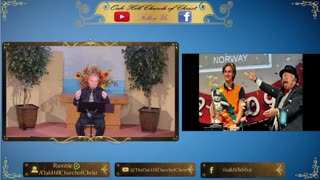 1:17:28
1:17:28
The Oak Hill Church of Christ
7 months agoOak Hill Church of Christ 10-01-23 Worship Stream Live!
12 -
 1:09:14
1:09:14
The Oak Hill Church of Christ
8 months agoOak Hill Church of Christ 9-3-23 Worship Stream Live!
8 -
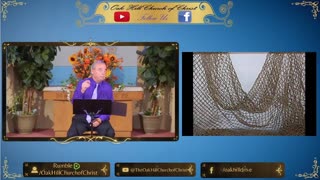 1:10:55
1:10:55
The Oak Hill Church of Christ
11 months ago $0.01 earnedOak Hill Church of Christ 6-25-23 Worship Stream Live!
16